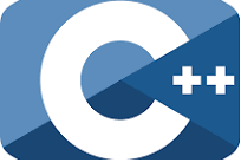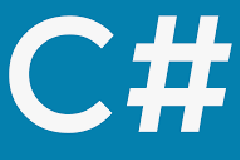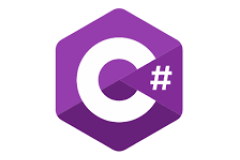To explore .NET technologies for designing and developing dynamic, interactive and responsive web applications.
Expected Learning Outcomes:
1. Understand the .NET framework
2. Develop a proficiency in the C# programming language
3. Proficiently develop ASP.NET web applications using C#
4. Use ADO.NET for data persistence in a web application
A .NET C# course focuses on teaching the C# programming language and the .NET framework, which are used for developing a wide range of applications including web, desktop, mobile, and cloud-based applications. Here’s a detailed overview of what you might expect from a comprehensive .NET C# course:
1. Introduction to C# and .NET:
- Overview: Understanding what C# is and its place within the .NET ecosystem.
- History and Evolution: Evolution of the .NET framework and C# language.
- Setup: Installing Visual Studio or Visual Studio Code, setting up the .NET SDK.
2. C# Basics:
- Syntax and Structure: Basic syntax, data types, variables, operators.
- Control Flow: Conditional statements (
if,switch), loops (for,while,do-while). - Functions and Methods: Defining, calling, and overloading methods.
- Exception Handling: Using
try,catch,finallyblocks, creating custom exceptions.
3. Object-Oriented Programming (OOP) in C#:
- Classes and Objects: Creating and using classes and objects, understanding constructors and destructors.
- Inheritance: Implementing inheritance, base and derived classes, method overriding.
- Polymorphism: Using method overriding and interfaces for polymorphism.
- Abstraction: Abstract classes and interfaces.
- Encapsulation: Using properties, access modifiers.
4. Advanced C# Features:
- Collections: Using collections like arrays, lists, dictionaries, and sets.
- Generics: Understanding and using generic types and methods.
- LINQ (Language Integrated Query): Writing queries using LINQ to manipulate collections.
- Delegates and Events: Working with delegates, events, and lambda expressions.
- Asynchronous Programming: Using
asyncandawaitfor asynchronous operations, understandingTaskandTask.
5. Working with .NET Frameworks and Libraries:
- .NET Core and .NET 5/6/7: Differences between .NET Framework, .NET Core, and the unified
1 The .Net Framework
2 C# language basics
3 ASP.Net
4 HTML Server Controls
5 Web Controls
6 State Management
7 Validation
8 Rich Controls
9 Themes and Master Pages
10 Website Navigation
11 ADO.Net
12 Data Binding
13 Data Controls
14 Working with XML
15 Caching
16 LINQ
Total Duration (45-50 Classes). Batches Weekend /Weekdays starting soon...








